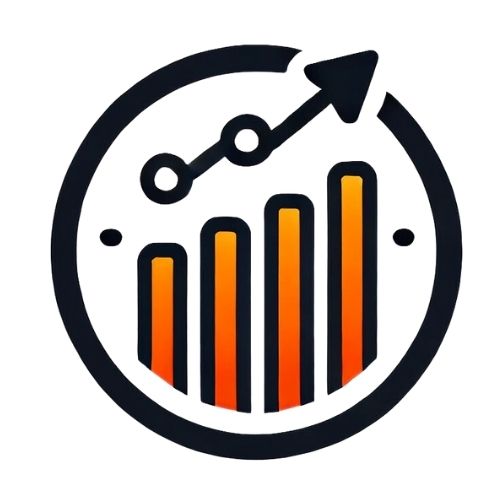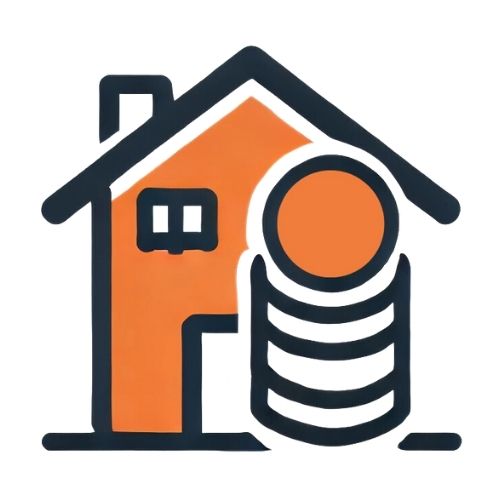
Personal loans can be a useful financial tool for consolidating high-interest debts, funding home improvements, or achieving other goals. However, while they offer fixed payments and often lower interest rates, not every purpose aligns with long-term financial well-being. Are you using a personal loan wisely?
Key Takeaways
- Not All Expenses Suit Personal Loans: Although personal loans are versatile, they may not be suitable for certain expenses, such as investments, home deposits, or starting a business, where high interest could outweigh the benefits.
- Consider Practical Alternatives: Before opting for a personal loan, explore other options, such as employer benefits, emergency savings, or government-funded programmes, which might offer lower rates or better terms for specific needs.
- Using Loans Wisely for Essential Needs: Personal loans can be advantageous for consolidating debt, covering emergency expenses, or funding home improvements. However, it’s crucial to use them strategically to avoid increasing long-term financial strain.
About Arcadia Finance
Effortlessly secure your loan with Arcadia Finance. Choose from 19 reliable lenders, all adhering to South Africa’s National Credit Regulator standards, and benefit from no application fees and a seamless, trustworthy experience tailored to your needs.
How Can You Use a Personal Loan?
There are situations where a personal loan might not be the ideal choice. However, here are some common scenarios where a personal loan could be beneficial:
- Combining High-Interest Debt: If you’re managing multiple accounts with high-interest rates, a personal loan can simplify your payments. By consolidating these debts into one loan, you’ll have only a single monthly payment, often at a lower interest rate, making it easier to manage.
- Covering Emergency Medical Expenses: Large medical bills can quickly disrupt your finances, even with solid health insurance in place. A personal loan may be a practical way to handle such expenses. However, check first if your medical provider offers an interest-free payment plan, as this may be more affordable than a loan.
- Financing Home Improvements: While a home equity loan or home equity line of credit (HELOC) are options for funding renovations or repairs, they require using your home as collateral. If you’re hesitant about this, a personal loan could be a viable alternative, providing you with the necessary funds without risking your property.
- Paying for Your Wedding: If you’re short of the full amount needed for your wedding, a personal loan could help bridge the gap. Compared to credit cards, personal loans generally come with lower interest rates, making this a cost-effective choice that can save you money in the long run.
- Supporting Family Planning: Whether you’re expecting a baby or preparing for adoption, a personal loan can help manage significant expenses, such as nursery essentials or supplementing your income during maternity leave. Personal loans can also be used for adoption or fertility treatments, which often require considerable financial resources.
Weigh the pros and cons of personal loans to ensure you choose conditions that align with your financial goals.

8 Things to Avoid When Using a Personal Loan

Investing
Using a personal loan for investing is often unwise. Even if potential returns exist, the interest on the loan can quickly diminish or eliminate profits, especially over long repayment periods. In South Africa, personal loans typically have terms of one to five years, with varying interest rates that can increase overall costs.
Consider the risks: if your income drops, the market underperforms, or unexpected events impact your finances, repayment may become challenging. A fallback plan is essential, but it’s generally more prudent to avoid using a personal loan for investments altogether.

Using a Personal Loan for a Home Deposit
Many home loan providers in South Africa do not allow the use of personal loans for the deposit on a home, and even if it is permitted, it may not be practical. A personal loan increases your debt-to-income ratio (DTI), which represents the percentage of your monthly income used to cover debt repayments.
Most mortgage lenders prefer a DTI under 43%, with some requiring it to remain below 36% to qualify for a home loan. Taking out a personal loan could raise your DTI beyond these limits, potentially leading to a rejection of your mortgage application. Additionally, relying on a personal loan for a deposit may signal to lenders that you are not financially ready for homeownership, which could impact their confidence in your application.

Starting a Business
Using a personal loan will not help you build business credit. The repayment records are tied to you as an individual rather than to the business itself. Should you default, the lender could pursue you personally to recover the debt, which may include formal collection actions.
If your goal is to establish a business credit profile to access future financing, consider a business credit card. If you have a strong credit history, you might qualify for a business card with a 0% introductory APR period lasting up to 21 months, potentially providing an interest-free period to repay the balance. However, it is crucial to note that once this introductory period ends, the card’s regular interest rate will apply. Missing a payment could also lead to losing the 0% offer, and a penalty rate exceeding 30% may then apply.

Covering Basic Living Expenses
When cash flow is tight, a personal loan might seem like a quick fix for daily expenses, but it is generally not advisable. While it can offer temporary relief, if you cannot repay both principal and interest, borrowing may worsen your financial strain.
If covering essentials is a challenge, consider revisiting your budget. Look for practical cuts, like reducing dining out or cancelling unused subscriptions, and explore additional income sources, such as negotiating a pay increase, taking on extra hours, or starting a side venture.

Paying University Fees
Some personal loans allow educational use, but this depends on the lender’s policies and regulations in South Africa. Before applying for a personal loan to cover university fees, confirm with the lender and explore other options like government student loans or bursaries, which usually offer lower rates and longer repayment terms. Government student loans also provide manageable monthly payments over 10 to 20 years, while personal loans typically have shorter terms and higher instalments.

Funding a Holiday
While you can use a personal loan to pay for holiday expenses like flights, accommodation, transport, and meals, it may not be the most financially wise choice for several reasons:
- Increased Debt: Everyone deserves a break, but taking a personal loan for a holiday could result in extended repayment periods, leading to long-term debt. This is particularly significant if you are unable to settle the loan quickly, especially when travelling with a group or going abroad.
- Higher Overall Cost: For example, if you take out a five-year personal loan for an R8,000 family holiday at an interest rate of 12%, you would end up paying an additional R2,677.33 in interest. This raises the total cost of your holiday to R10,677.33, a 33% increase from the original price.
- Impact on Debt-to-Income Ratio: Adding more debt increases your DTI ratio, which may affect your ability to qualify for future loans, such as a home loan or vehicle finance, particularly if your DTI rises above 36% or 43%, depending on the lender’s requirements.
Although personal loans offer a straightforward way to fund a holiday, consider alternatives such as saving in advance, using a credit card with a 0% introductory rate, or taking advantage of credit card rewards. These options allow you to cover holiday expenses without taking on additional debt.

Discretionary Purchases
Personal loans can be used for nearly any purpose, but financial advisors caution against using them for non-essential spending, like dining out or buying new gadgets, as this can lead to unnecessary debt. Missing payments may also harm your credit score. Planning ahead through budgeting—such as using the 50/30/20 rule to balance essentials, discretionary spending, and savings—can help you avoid relying on loans for “wants.” Building an emergency fund or using a 0% interest credit card for unexpected expenses can also be wise alternatives.

Gambling
You cannot use a personal loan for gambling or any illegal activities, regardless of whether gambling is legal where you are. Lenders are committed to promoting responsible financial habits and thus restrict the use of loans for gambling purposes.
When applying for a personal loan, the lender usually asks about your intended use for the funds. It is essential to be truthful, as gambling is not an acceptable reason for obtaining a loan. Providing false information in a loan application can have serious consequences, potentially resulting in bank fraud charges, which could lead to significant fines or even prison time.
One of the best ways to avoid misusing personal loans is by planning your finances carefully. To keep your spending on track, it’s crucial to create a solid budget plan that outlines all your expenses and helps you visualize your financial goals.
Organise Your Credit Before Applying for a Personal Loan
Before applying for a personal loan, it is advisable to review and enhance your credit status, as this can significantly affect your chances of approval and the terms offered. South African lenders generally provide the most favourable interest rates to applicants with higher credit scores. By taking steps to improve your credit rating, you may increase your chances of securing a loan with lower interest rates, which can result in substantial savings on interest costs throughout the loan term.

Potential Consequences of Misusing Personal Loans
Misusing personal loans can lead to significant financial and personal challenges. Here’s a closer look at some of the main risks:
Debt Accumulation and High Interest
One major risk of misusing personal loans is the accumulation of unmanageable debt. Personal loans often come with high interest rates, which can quickly inflate the cost of non-essential purchases or recurring expenses. When loan repayments become difficult to manage, borrowers may fall into a cycle of debt, sometimes taking out new loans just to cover existing ones. This spiral, exacerbated by high interest rates, can hinder financial recovery in South Africa’s challenging economy.
Financial Strain and Mental Health
Debt can lead to considerable stress, anxiety, and even mental health issues, particularly when repayments feel unmanageable. The pressure of debt can affect daily well-being, relationships, and productivity, and in severe cases, contribute to depression. Given the economic pressures in South Africa, managing debt wisely is crucial to avoid added mental and financial strain.
Credit Score Impact
Missed payments or defaulting on a personal loan can severely affect one’s credit score, limiting future access to affordable credit options. In South Africa, credit scores are closely monitored, and a poor repayment history reduces eligibility for loans or increases interest rates on future borrowing. This restriction can impact major life plans, such as buying a home or starting a business, forcing borrowers to incur higher costs when they need credit.
Before taking on more financial obligations, it’s crucial to know if you’re under debt review. This knowledge can prevent you from making decisions that further complicate your financial situation.
Conclusion
While personal loans can be an effective tool for meeting various financial needs, it is essential to use them thoughtfully and only when they align with your overall financial health. Avoiding high-risk or non-essential uses—such as funding investments, discretionary purchases, or gambling—can help prevent unmanageable debt. Instead, reserve personal loans for meaningful goals, such as consolidating high-interest debt or covering unexpected expenses that genuinely benefit your finances. Exploring alternative funding options and assessing whether a personal loan is the right fit for your situation will help you make financially sound decisions that support your long-term well-being.
Frequently Asked Questions
While personal loans are flexible, they are not suitable or permitted for all purposes. Some lenders restrict uses such as gambling, and it is generally wise to avoid high-risk or unnecessary expenses to prevent debt issues.
Investment returns are not guaranteed, but personal loans accrue interest regardless. If your investment does not perform as expected, you could end up with more debt than profit.
Relying on loans for daily expenses can lead to debt cycles, as you pay both principal and interest without resolving your financial issues, which adds strain over time.
Most mortgage lenders in South Africa discourage using personal loans for deposits, as it increases your debt-to-income ratio and may affect your mortgage approval.
Consider saving, budgeting, or using a credit card with 0% interest, if available. Planning ahead for discretionary expenses can help you avoid incurring debt for non-essential items.
Fast, uncomplicated, and trustworthy loan comparisons
At Arcadia Finance, you can compare loan offers from multiple lenders with no obligation and free of charge. Get a clear overview of your options and choose the best deal for you.
Fill out our form today to easily compare interest rates from 19 banks and find the right loan for you.



